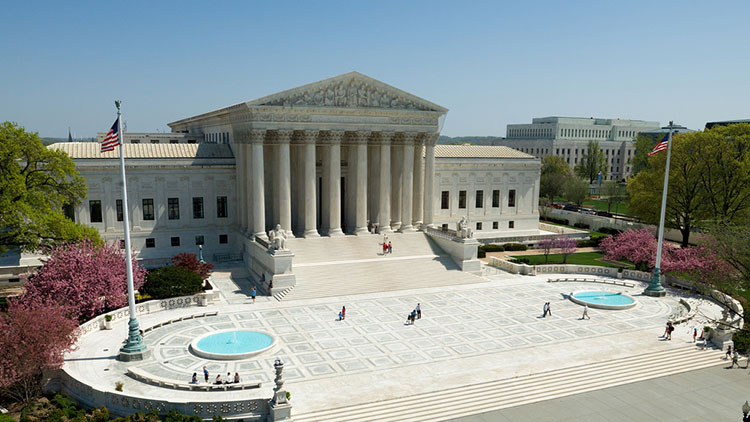Fix the Court: No Word on Same-Day Audio Request

The smarter way to stay on top of broadcasting and cable industry. Sign up below
You are now subscribed
Your newsletter sign-up was successful
Gabe Roth, executive director of Fix the Court, tells B&C that at presstime Wednesday he had yet to hear back from the Supreme Court on his request that it release same-day audio of oral argument in Trinity Lutheran Church v. Comer.
The case, which is being argued April 19, deals with the separation of church and state and whether churches can be excluded from an otherwise secular aid program. It will be one of the first big cases heard by the full court, including just-seated Trump-appointed Associate Justice Neil Gorsuch, who famously ruled in the Hobby Lobby case that a closely held for-profit company, under the law, could practice religion and thus refuse to comply with government mandates that violate its religious beliefs. Specifically, in Burwell v. Hobby Lobby Stores Inc. the Court's majority directly struck down the Affordable Care Act's contraceptive mandate requiring employers' health care plans to cover certain contraceptives for female employees.
"In the past, the Court has released same-day audio for cases with heightened public interest," Roth wrote to chief justice John Roberts April 7. "This case, granted certiorari nearly 15 months ago and comprising both Free Exercise and Establishment Clause concerns, certainly meets that bar."
Fix the Court advocates for more transparency in federal courts, including pushing for video and audio access to oral argument and, absent that, same-day audio.
Currently the Supreme Court does not allow real-time audio or video of oral arguments but has, as Roth pointed out, released same-day and delayed audio of important cases.
Separately, Roth was praising Hill Democrats for introducing a bill, appropriately named the Supreme Court Ethics Act (for the fourth time in six years he pointed out) that would require Supreme Court justices to adopt a code of professional ethics.
That would provide some uniformity around recusals, for one thing. Currently, the justices are the independent arbiters of what entangling alliances—past work on cases, stock in a related company—prompt their recusals from participating in decisions.
The smarter way to stay on top of broadcasting and cable industry. Sign up below
Contributing editor John Eggerton has been an editor and/or writer on media regulation, legislation and policy for over four decades, including covering the FCC, FTC, Congress, the major media trade associations, and the federal courts. In addition to Multichannel News and Broadcasting + Cable, his work has appeared in Radio World, TV Technology, TV Fax, This Week in Consumer Electronics, Variety and the Encyclopedia Britannica.

